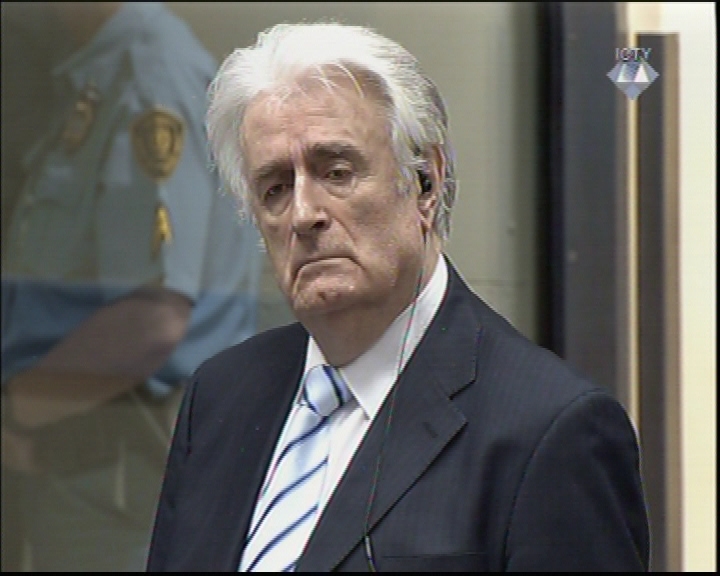Home
APPEAL HEARING IN THE KARADZIC CASE TO BE HELD END OF APRIL 2018
The Appeals Chamber of the Mechanism for International Criminal Tribunals sets schedule for the hearing of oral arguments filed by the Prosecution and the Defence against the sentence of 40 years in prison for ex president of RS Radovan Karadzic found guilty for genocide and other crimes in Bosnia and Herzegovina
 Radovan Karadzic sentencing
Radovan Karadzic sentencing The appeal hearing in the Radovan Karadzic case will be held on 23 and 24 April, in accordance with the scheduling order issued by the Mechanism for International Criminal Tribunals (MICT), set up in order to wrap up the outstanding cases of the International Criminal Tribunals - for the Former Yugoslavia (ICTY) and Ruanda (ICTR).
In March 2016, former Republika Srpska president Radovan Karadzic was found guity of genocide and other crimes in the war in Bosnia and Herzegovina and sentenced to 40 years in prison. Both the prosecution and the defence have filed their notices of appeal against the trial judgement. Karadzic argues that he was not given a fair trial, alleging that, instead of the presumption of innocence, the judges applied the „principle of guilt“. The judgement rendered by the Trial chamber was a construction built on that foundation, according to the accused. The most glaring example of the failure to administer justice was the conviction for genocide based on the presumption that he shared the intent to kill all the prisoners from Srebrenica.
Karadzic goes on to argue that he was put on a „political trial“ set up to „vilify“ both him and his ethnic community, the Bosnian Serbs. He sees international justice as a „failed project“ in which judges with little knowledge of the region and its culture, language and history have followed procedure foreign to the accused and in a foreign language; their conclusions being foreign to those who know the region and the truth.
The prosecution, for its part, appeals against Karadzic's acquittal on first count of the indictment charging him with genocide in 1992 in the Bratunac, Foca, Kljuc, Prijedor, Sanski Most, Vlasenica and Zvornik municipalities. In the first ground, the prosecution argues that the Trial Chamber erred in law and in fact when it failed to establish that extermination, murder and persecution on political, religious and racial grounds were part of the joint criminal enterprise aimed at the permanent elimination of Muslims and Croats from the territories of the seven municipalities. Karadzic did share the intent, the prosecution alleges.
The prosecution argues that the 40-year prison sentence is inadequate and calls on the Appeals Chamber to sentence Karadzic to life.
The Appeals Chamber of the MICT delivering a final verdict in the case against former leader of Republika Srpska is composed of judge Meron (US), presiding, and judges Sekule (Tanzania), Joensen (Denmark), De Prada Solaesa (Spain) and Gatti Santana (Uruguay).
Linked Reports
- Case : Karadzic
- 2017-02-01 EXPERTS CONTRADICT KARADZIC: TRIBUNAL'S DETENTION UNIT IS NOT 'CARCINOGENIC'
- 2016-07-22 PROSECUTION APPEALS AGAINST KARADZIC’S JUDGMENT AND SENTENCE
- 2016-07-22 KARADZIC CONDEMNS INTERNATIONAL JUSTICE IN HIS APPEAL
- 2018-04-23 KARADŽIĆ APPEALS FOR ACQUITTAL OR RETRIAL
- 2018-04-24 THE PROSECUTION: GENOCIDE CONVICTION AND LIFE IN PRISON FOR KARADŽIĆ
- 2019-03-20 RADOVAN KARADŽIĆ GETS LIFE SENTENCE
